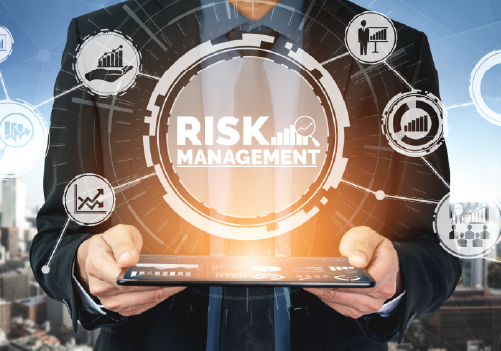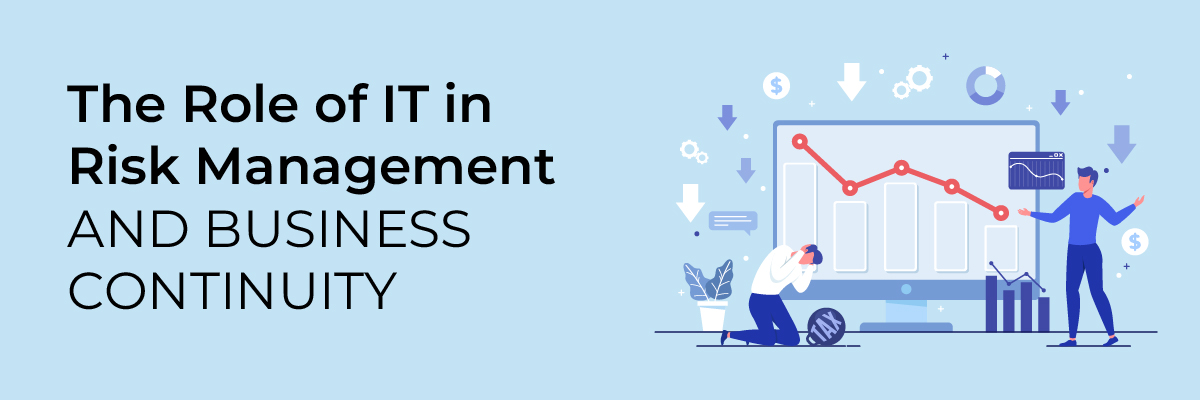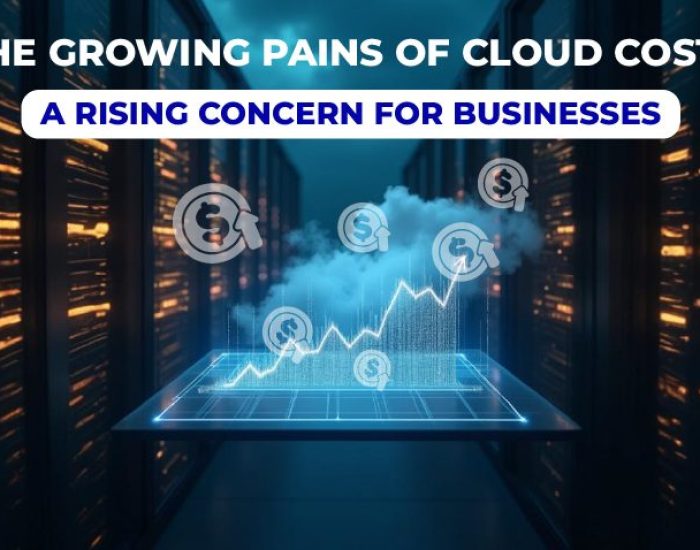The Role of IT in Risk Management and Business Continuity
In today’s hyper-connected world, businesses are constantly exposed to a wide range of risks—from cyberattacks and data breaches to natural disasters and operational failures. The ability to anticipate, mitigate, and recover from these risks is critical for long-term success. This is where Information Technology (IT) plays a pivotal role. As a leading Managed Service Provider (MSP) and IT services provider in the US, Protected Harbor understands the role of IT in risk management and business continuity.
In this blog, we’ll explore how IT empowers organizations to manage risks effectively, maintain operational resilience, and thrive in the face of adversity.
Understanding Risk Management and Business Continuity
Before diving into the role of IT, let’s define the two key concepts:
- Risk Management: The process of identifying, assessing, and mitigating risks that could negatively impact an organization’s operations, finances, or reputation.
- Business Continuity: The ability of an organization to maintain essential functions during and after a disruption, ensuring minimal downtime and a swift recovery.
Together, these practices form the backbone of organizational resilience. And in the digital age, IT is the driving force behind both.
The Role of IT in Risk Management
1. Proactive Threat Detection and Prevention
Cyber threats are among the most significant risks businesses face today. IT systems equipped with advanced cybersecurity tools—such as firewalls, intrusion detection systems, and endpoint protection—can identify and neutralize threats before they escalate. At Protected Harbor, we deploy cutting-edge solutions to safeguard your network, data, and devices, ensuring your business stays one step ahead of cybercriminals.
2. Data Protection and Compliance
Data is the lifeblood of modern businesses, and its loss or exposure can be catastrophic. IT plays a crucial role in implementing robust data protection measures, including encryption, access controls, and regular backups. Additionally, IT ensures compliance with industry regulations like GDPR, HIPAA, and CCPA, reducing the risk of legal penalties and reputational damage.
3. Risk Assessment and Analytics
Modern IT systems leverage artificial intelligence (AI) and machine learning (ML) to analyze vast amounts of data and identify potential risks. These tools provide actionable insights, enabling businesses to make informed decisions and allocate resources effectively.
4. Disaster Recovery Planning
No organization is immune to disasters, whether natural or man-made. IT facilitates the creation of comprehensive disaster recovery plans, ensuring that critical systems and data can be restored quickly in the event of an outage or breach.
 The Role of IT in Business Continuity
The Role of IT in Business Continuity
1. Cloud Computing and Remote Work Solutions
The COVID-19 pandemic highlighted the importance of remote work capabilities. Cloud-based IT infrastructure allows employees to access essential tools and data from anywhere, ensuring business operations continue uninterrupted. Protected Harbor offers scalable cloud solutions tailored to your business needs, enabling seamless collaboration and productivity.
2. Redundancy and Failover Systems
IT ensures business continuity by implementing redundancy and failover systems. These backup solutions automatically take over in the event of a system failure, minimizing downtime and maintaining operational efficiency.
3. Real-Time Monitoring and Incident Response
IT systems equipped with real-time monitoring tools can detect issues as they arise, enabling swift incident response. This proactive approach reduces the impact of disruptions and ensures a faster return to normal operations.
4. Employee Training and Awareness
Human error is a leading cause of security breaches and operational disruptions. IT plays a key role in educating employees about best practices for cybersecurity and risk management, fostering a culture of vigilance and preparedness.
Why Partner with Protected Harbor?
At Protected Harbor, we understand that every business is unique, with its own set of challenges and requirements. As a trusted IT services provider, we offer customized solutions designed to enhance your risk management and business continuity strategies. Our services include:
- 24/7 Network Monitoring: Continuous oversight to detect and address threats in real time.
- Data Backup and Recovery: Reliable solutions to protect your data and ensure quick recovery.
- Cybersecurity Services: Comprehensive protection against evolving cyber threats.
- Cloud Solutions: Scalable and secure cloud infrastructure to support remote work and business growth.
- Disaster Recovery Planning: Tailored plans to minimize downtime and ensure business resilience.
The Future of IT in Risk Management and Business Continuity
As technology continues to evolve, so too will the role of IT in risk management and business continuity. Emerging trends like AI-driven analytics, blockchain for secure transactions, and the Internet of Things (IoT) for real-time monitoring will further enhance organizational resilience.
However, staying ahead of these trends requires expertise and resources that many businesses lack. Partnering with a trusted MSP like Protected Harbor ensures you have access to the latest technologies and best practices, empowering your business to navigate risks and thrive in an uncertain world.
Conclusion
In an era defined by digital transformation and unprecedented risks, IT is no longer just a support function—it’s a strategic enabler of risk management and business continuity. By leveraging the right IT solutions and partnering with experts like Protected Harbor, businesses can build a resilient foundation capable of withstanding disruptions and driving long-term success.
Don’t leave your business’s future to chance. Contact Protected Harbor today to learn how our IT services can help you manage risks, ensure continuity, and achieve your goals.






